The loss of biodiversity is one of the most serious challenges the world is facing right now. And yet it is still not high up on the agenda of many politicians and there is a lack of awareness in the general public. Sylvie Goulard, a former Minister and Deputy Governor of the Banque de France, talks about the risks of nature deterioration for economies and why green bonds are not enough to solve the crisis.
Sylvie Goulard
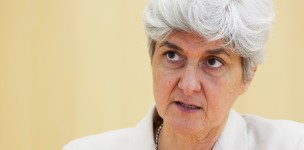
Focus on finance and biodiversity
Sylvie Goulard is deputy governor of the Banque de France. Before that, she sat in the European Parliament for many years and was minister of defence in Emmanuel Macron's government. Last year, the French central bank published a widely respected study on biodiversity: according to this study, 42 percent of the investments of French financial institutions are strongly or very strongly dependent on intact nature. Sylvie Goulard spoke about what this means for the future of France and the financial sector during a visit to KfW in October. She took part in the Development Finance Forum 2022 as a guest speaker and met various KfW representatives, including Board Member Christiane Laibach.
We are in the middle of different overlapping crises, the war in Ukraine being a serious factor. Do you fear the world is moving away from dealing with climate change and the loss of biodiversity?
The Russian aggression is indeed very bad news, obviously for the Ukrainians themselves but also for the functioning of the multilateral system because it absorbs a lot of attention and money from all of us. It also opens the way to using more coal and re-opening power plants. These are negative developments we are observing right now. On the other hand and in the longer run it might also be a driver for a transition to a much more sustainable use of energy. So, to me it´s a mixed picture and the outcome not yet clear. But there is definitely a risk that we do not tackle climate change and biodiversity loss with the determination needed.
Does that mean we will first have to see the end of the Ukranian war before we can get back on track on these two agendas?
No, that should not happen. Because the war could end soon, yet it could also go on for a long time, it could be frozen. Nobody knows. Therefore, we should not wait for an outcome here to continue tackling climate and biodiversity issues.
These two crises are intertwined. Why are we so much farther on the climate than on the biodiversity side while it is clear that the latter is just as dangerous for human kind as higher temperatures?
First of all I would like to say that I wished we were much more advanced in the fight against climate change. We have an agreement, yes, but it´s one thing to have pledges and commitments on paper and another to really implement them. I am not saying nothing is happening but we should do more and progress faster.
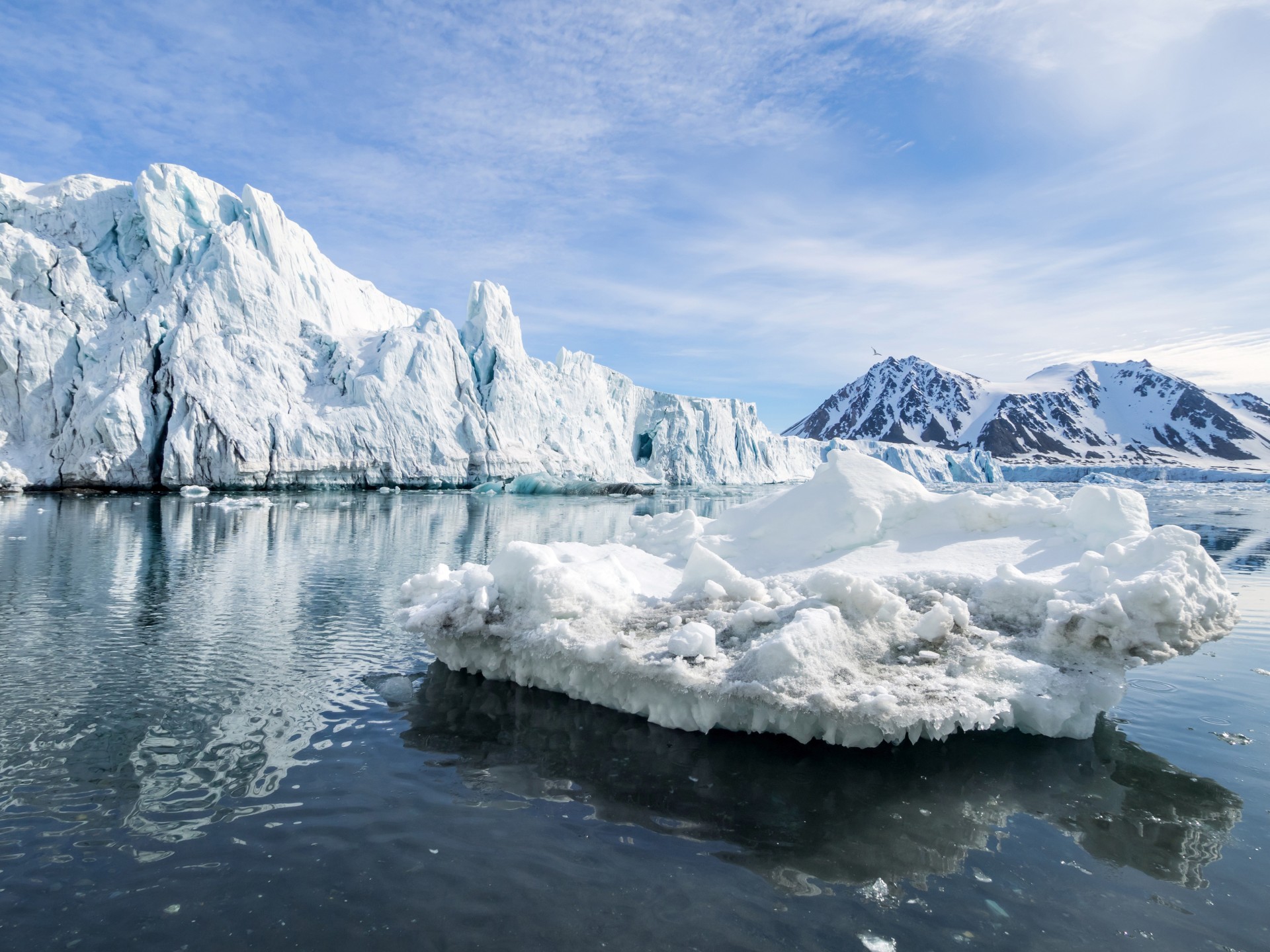
But isn´t the awareness for the risks connected to climate change much higher than for the dangers resulting from nature loss?
That is right - and there are several reasons for it: The biodiversity issue is more complex with very different ecosystems. Coral reefs are not the artic isles, and rain forests can´t be compared to savannahs. There is a patchwork of problems that one has to combine and understand. The second reason, which is directly linked to first one, is there are no simple metrics that can be used by economic and financial decision makers. We do not yet know how to translate the existing data and metrics produced by scientists on biodiversity loss or biodiversity protection into relevant pieces of information for the economic and financial sphere. All this does not mean that we do not have to act, it´s in fact very urgent. But it is an explanation why we are behind here.
Do we need better stories, better narratives maybe to create more awareness?
Definitely yes, we need the right narrative and the right people to convey it. It needs people talking with their guts, convincing others that we really have to get going now. We don´t have that yet for the loss of biodiversity. There is not Fridays-for-future-movement that goes out and demands to stop destroying nature. On another level I remember Mark Carney, the former Governor of the Bank of England, giving a speech in 2015, just before the conclusion of the Paris Agreement. His contribution made a real difference: The content was right, the narrative was right and the language was convincing. So yes, we need more of this now for biodiversity.
The Central Bank of France has released a report called “A ´silent spring` for the financial system?” in which you measured the significance of nature for France. What in your opinion were the most important results of this report?
We are aware of the fact that the methodology could be criticized but nonetheless we conducted the study. The results showed: Around 42 % of the market value of securities held by French financial institutions comes from issuers that are highly dependent on at least one ecosystem service. That means almost half of the French economy will be affected if we continue to lose nature in the unprecedented pace of the last years. Plus, we found out that the portfolio of French financial institutions has an impact on terrestrial biodiversity that corresponds to the artificialization of 48 times the area of Paris - every year. All that clearly reveals that the risks of biodiversity loss are very serious. There are studies in a number of other countries like the Netherlands, Malaysia, Brazil and Mexico that had similar outcomes.
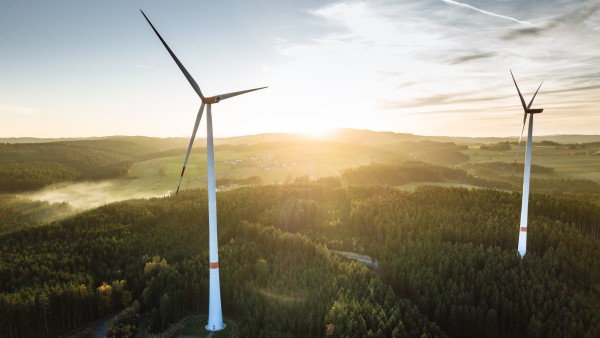
Renewable Energies
Green bonds can make an important contribution to financing sustainable environmental and climate protection projects.
Has this study raised the awareness in France?
Yes, it did. The private sector showed keen interest in the results. And Christine Lagarde, the President of the European Central Bank, referred to it as well, for example at the IUCN Congress in Marseille in September 2021.
You were talking about the financial sector and that it should become greener. Where are we standing here?
Let me start by saying that issuing green bonds is not the best indicator even if they have been growing exponentially over the past years. Expanding them is important and impressive. But they still represent only a small niche. The real challenge is to transform the carbonized and polluting economy into an economy which respects climate neutrality and is nature neutral or even positive. The magnitude of change in general is the important factor. Although we see a growing awareness in finance a lot remains to be done.
How can this be achieved swiftly in your opinion?
One very important measure here is the disclosure of nature risks. The Taskforce on Nature-related Financial Disclosures - TNFD - is working on a framework to report on such risks. France has been involved in this from the beginning. This framework will enable companies and financial institutions to integrate nature into decision making. And that way companies can be compared; we can see what they really do, not only what they pledge and promise. But we are not there, yet. The framework should be ready by the end of next year.
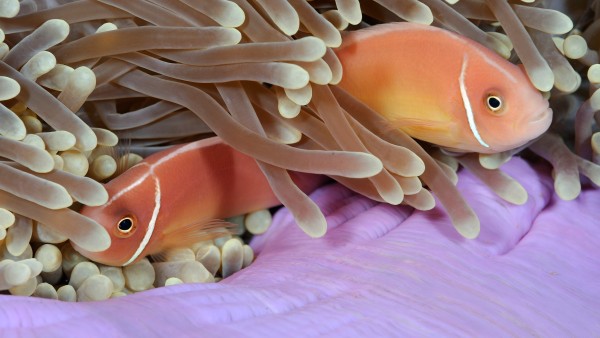
Coral Reef
The marine ecosystem is under enormous pressure. Be it through overfishing, shipping traffic, pollution, deep-sea mining or climate change.
And then what happens after the framework was published? What would be the next steps?
Then this framework has to be transferred to political decision making bodies, first of all to a European level, and later to a global level. Because only then will it have the effect that is necessary. Ideally one day all firms will have to report on their nature-related risks.
Is this a realistic scenario?
These discussions are admittedly not easy since there is no global legislator. So, it´s important that there are people who endorse the framework in different jurisdictions. But as I said before: The most important task now is to increase the awareness on the topic. And then you will see companies to jump on because they will realize it is in their interest to embrace this new development because it will be a competitive advantage.
Which advantage could that be? In the first place it is going to be more expensive to be nature-positive….
In France for instance we already have the situation that young people refuse to work for old-school companies - companies out of touch with environmental issues. So, it could be an advantage for recruitment, also for the reputation. Clients could ask for it. There are many aspects. However, I am not saying that this transition is going to be easy. What I am saying is that we have to push in that direction because it is clear that business as usual is no longer viable.
World Climate Conference in Sharm el-Sheikh (COP27)
In November 2022, the Parties to the Framework Convention on Climate Change will meet in Sharm el-Sheikh for the UN Climate Conference, COP (Conference of the Parties) 27. COP27 is intended to advance the implementation of the Paris Climate Agreement. Because the global community is not on track to achieve its self-imposed goal of limiting global warming to 1.5 degrees.
COP27 Sharm el-SheikhWhat do you expect from the two upcoming summits on climate and biodiversity in November and December?
I do not take part in the negotiations so I can only make general comments. For climate I hope the COP in Sharm-el-Sheikh makes real progress in further implementing the Paris Accord. In Glasgow member states decided to phase out the use of coal without setting a date. It would be good if they continued on that path. And for biodiversity I hope that people come with a truly open spirit to Montreal. So far the outcome document has still many brackets. It would be important that they dissolve them and produce results that are more than lip service - because time is running out. We are in a very critical phase.
Published on KfW Stories: 7 November 2022.

All United Nations member states adopted the 2030 Agenda in 2015. At its heart is a list of 17 goals for sustainable development, known as the Sustainable Development Goals (SDGs). Our world should become a place where people are able to live in peace with each other in ways that are ecologically compatible, socially just, and economically effective.

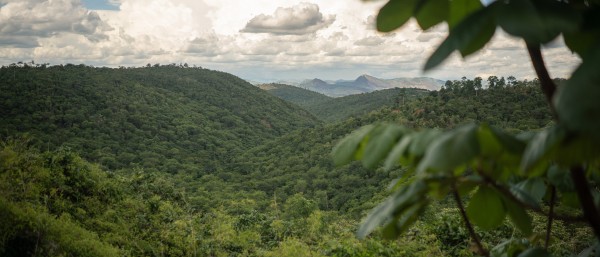
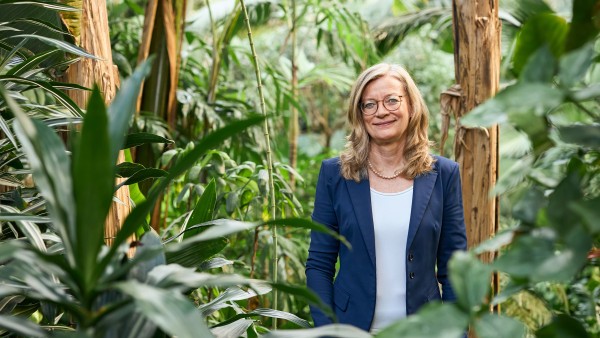
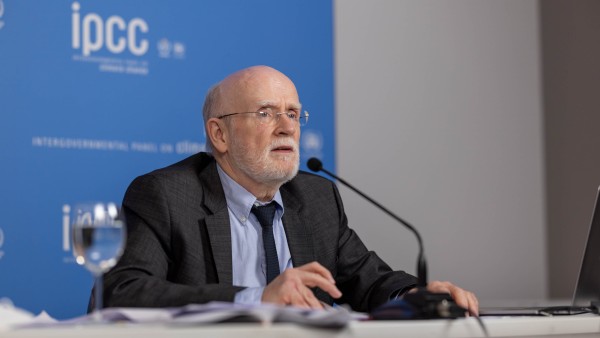
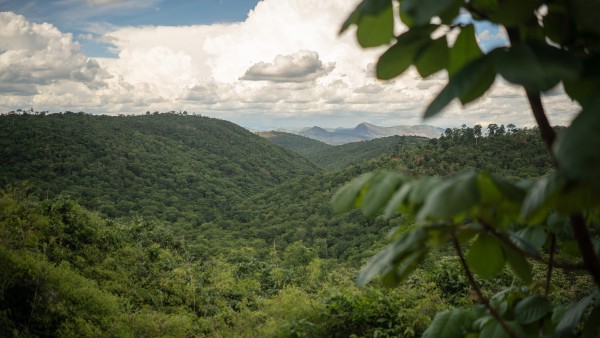
Data protection principles
If you click on one of the following icons, your data will be sent to the corresponding social network.
Privacy information